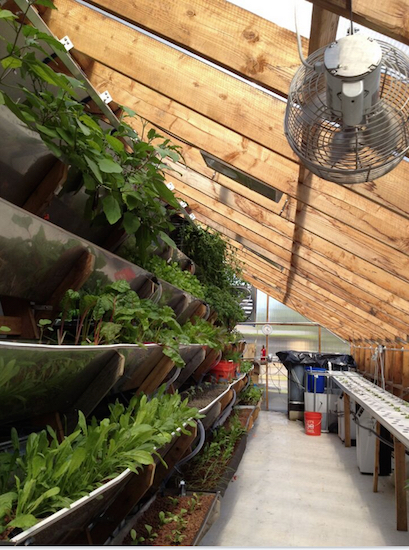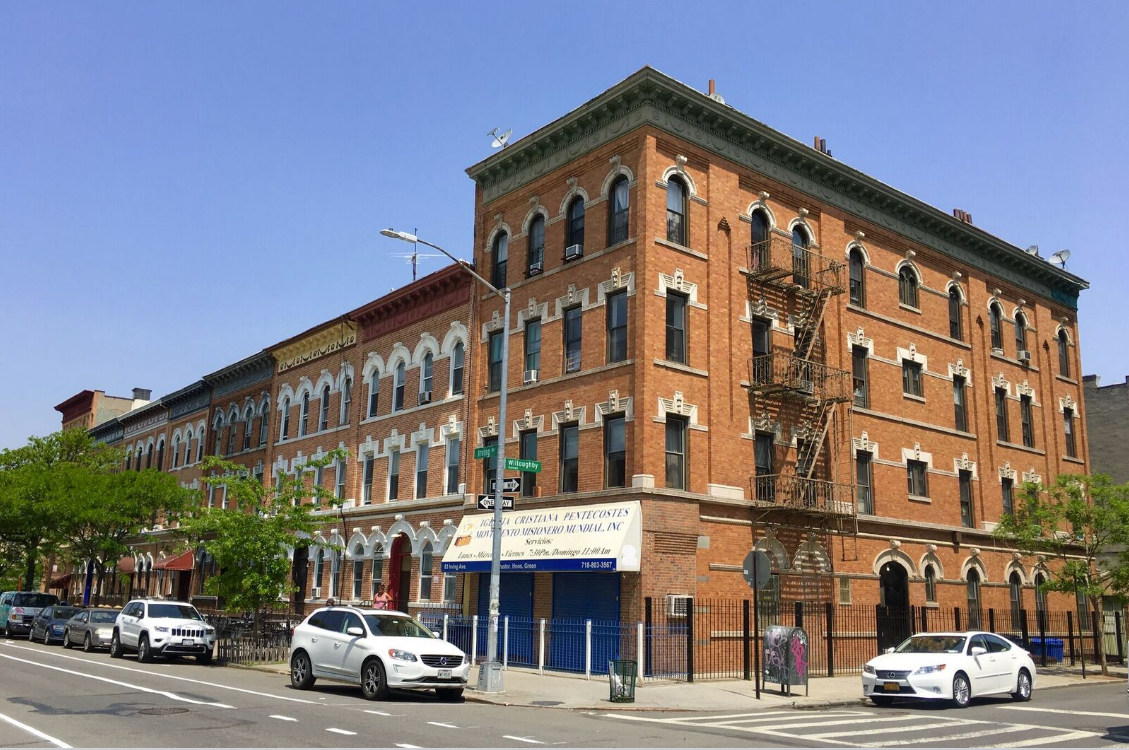Fish on the roof — and micro basil, too — in Bushwick
Eye On Real Estate: Piscine production and salad greens galore at Edenworks, an aquaponic farm

Garden Of Eden — actually it's Edenworks, an aquaponic farm in Bushwick. Eagle photos by Lore Croghan
Up in the air, tilapia swim.
In Bushwick, you can say such a thing and nobody can call you crazy.
Fine fish are frolicking by the tubful on the roof of an industrial building at the corner of Bushwick and Johnson avenues.
